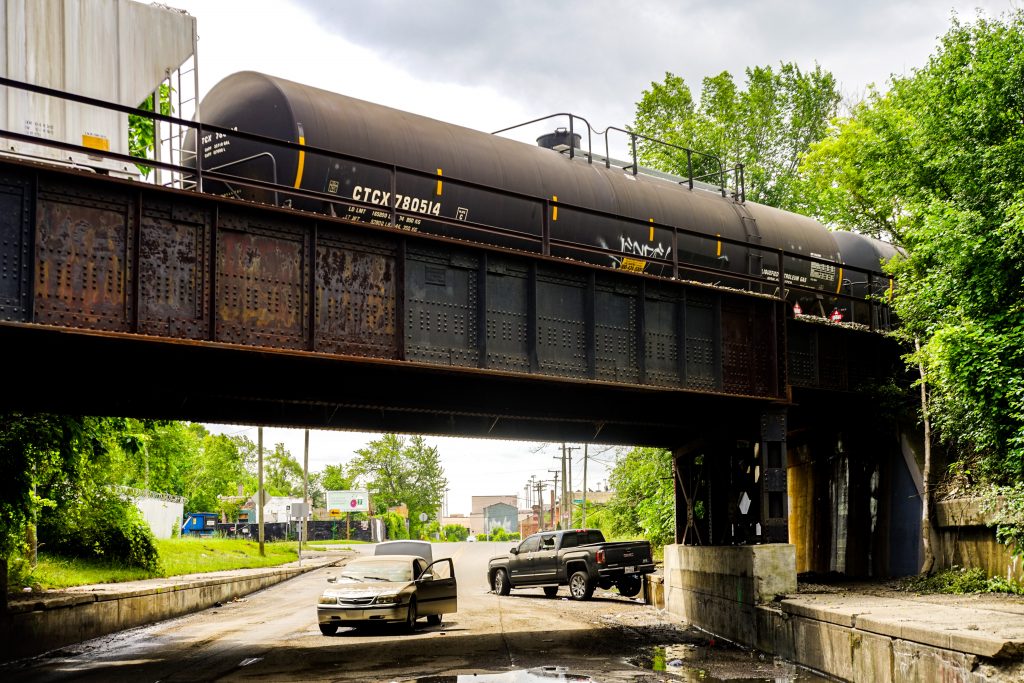Unpacking the Infrastructure Package and What It Means for Michigan
Journalist Russell Berman and climate infrastructure expert Beth Gibbons weigh in on how the massive infrastructure package will be put to use nationally and here in Michigan.

Earlier this week, the Senate passed a $1 trillion bipartisan infrastructure package, a sweeping piece of legislation that has already made history for its inclusivity. The bill includes hundreds of billions of dollars for water, transportation and broadband infrastructure, all of which desperately need updating in the state of Michigan, and all over the country.
“[The infrastructure bill] will affect pretty much every community in America in some way … although people might not see it directly.” –Russell Berman, The Atlantic
Listen: What the massive infrastructure bill means for all of us.
Guests
Russell Berman is a staff writer at The Atlantic where he covers politics. Berman notes that the package includes funding for roads, bridges, airports, rail and water infrastructure. It will also address climate change, although some Democrats say it doesn’t do enough in that last area. “It will affect pretty much every community in America in some way … although people might not see it directly,” says Berman. He says this moment is significant as “infrastructure is the kind of thing people have been talking about as a bipartisan issue for a long time.”
When looking back at how this bill stacks up against similar infrastructure plans in recent history, Berman says this is very different from the 2009 effort under the Obama administration that emphasized “shovel-ready projects.” Instead, Berman explains that the idea for the new bill is that money will begin to go out for various projects over the next 8-10 years. Berman notes that the plan is aligned with the return to “big government” many have been noticing since Biden took office. “The Biden approach is very much a reversal of the trends we had seen for 30 or 40 years beginning with Reagan,” says Berman.
Beth Gibbons is the executive director of the American Society of Adaptation Professionals. On the storms in Southeast Michigan in recent months, Gibbons says that the “storms here … have been the most close and acute feeling of the ways that climate change is impacting our lives.” However Gibbons notes that we are far from alone. “This summer has been a horrendous season of climate impacts wherever you look,” she says. In thinking about how we collectively break the disaster cycle, Gibbons says it’s important for public officials to stop “taking [these storms] as one-off events.” That approach, she explains, “is reaching the end of its useful life.”
“We have a crisis of the public good … we are not investing in our infrastructure the same way we don’t invest in our schools or health care.” –Beth Gibbons, American Society of Adaptation Professionals
Gibbons says the funding from the infrastructure plan, which includes $1 billion to the Great Lakes Restoration Initiative, will be a shot in the arm to allow us to think about and respond to the challenges already facing the state. But as far as asking “what does climate adaptation actually look like, and what does climate resilience actually mean?” Gibbons says she is hesitant about the role this funding will have in pushing elected officials to critically and authentically ponder those questions. “We have a crisis of the public good … we are not investing in our infrastructure the same way we don’t invest in our schools or health care,” says Gibbons. “Until we really grapple with that and decide to significantly invest in those things … it will be very hard for us to have the kinds of places and things that we want in our lives.”
Trusted, accurate, up-to-date.
WDET strives to make our journalism accessible to everyone. As a public media institution, we maintain our journalistic integrity through independent support from readers like you. If you value WDET as your source of news, music and conversation, please make a gift today.
